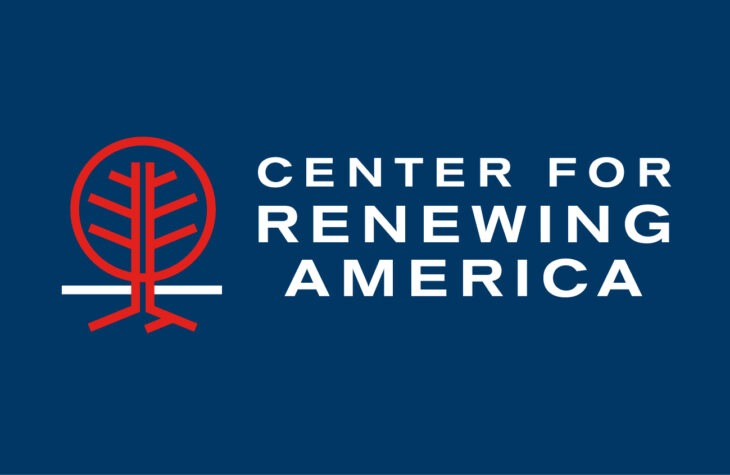
POLICY BRIEF: Judiciary Committee Bills Start Important Antitrust Big Tech Reform Debate but Refinements Needed

Led by Rep. David Cicilline (D-RI), a number of House Judiciary Committee Members recently introduced a slate of antitrust bills to reform Big Tech. While antitrust reform is a vital tool for conservatives to respond to the clear and catastrophic threat posed by the Big Tech firms, reform must be done carefully so as to not needlessly expand government power hostile to free enterprise and small business. The trick will be to target the excesses of Big Tech and its threat to free markets and free society—but without blessing an expansion of big government perhaps made even more powerful and hostile to freedom by collusion with the internet firms, knowing that has long been a policy aim of the Left.
These bills represent the start of a welcomed antitrust debate and the first opportunity for Congress to weigh the merits of different ideas, beginning to carefully vet the proper legislative text and the tradeoffs that either might be required or go too far. Much work remains to ensure these bills do no harm. Accordingly, each of the Judiciary Committee bills is discussed in turn:
Structural Separation:
Rep. Pramila Jayapal’s ‘‘Ending Platform Monopolies Act’’ (H.R. 3825) presents serious concerns. It imposes so-called structural separation on a “covered platform operator,” i.e. firms such as Google, Facebook, and Amazon. This legal remedy requires the covered operators to refrain from activities that are in “lines of business” that compete with any other business that uses their platforms. In other words, Google couldn’t own an airplane ticket service that competes with Travelocity—or even a company that gives rise to a “conflict of interest” with a platform’s business concerns.
Structural separation is often a remedy in antitrust suits, and the Federal Communications Commission (FCC) has imposed these requirements on telephone companies. But, usually, these legal prohibitions are imposed in specific and precise ways. In contrast, H.R. 3825 creates vague terms: “lines of business” and “conflict of interest,” without definition, and empowers the DOJ and the Federal Trade Commission (FTC) to bring suit thereby defining these terms. Similarly, DOJ and FTC decide whom the law would cover by designating which platforms are “covered.” There is no private cause of action.
Mergers and Acquisitions:
Rep. Hakeem Jeffries’ “Platform Competition and Opportunity Act” (H.R. 3826) also raises concerns. It addresses the perceived problem of dominant platforms buying up startups that could become potential rivals—and thereby squelching competition. And, the acquisitions of YouTube, Instagram, and Whatsapp suggest that it is possible for wealthy dominant platforms to buy off any startup that has the smallest chance of offering an alternative. H.R. 3826 is quite aggressive in solving this problem. It prohibits a “covered platform” from acquiring any firm unless it is shown by “clear and convincing” evidence that such acquisition will not hurt existing, “nascent,” or even “potential” competition.
The standard of proof for an acquisition: “clear and convincing” and the negative that needs to be proved: no harm to “potential” or “nascent” competition seem impossibly high barriers to any acquisition. DOJ’s and the FTC’s role in determining “covered platforms” then gives the government a huge role to play.
Improvements to this legislation would include making a covered entity a judicial determination, not administrative. Lowering the standard of proof to preponderance of evidence would also make this bill more reasonable.
Discriminatory Behavior:
Rep. David Cicilline’s “American Choice and Innovation Online Act” (H.R. 3816) prevents large platforms from behaving in a discriminatory fashion toward its competitors. It does not require the large platforms to divest of lines of business that compete with other businesses. Thus, Google must treat Yelp! in the same way that it treats its own recommendation services, i.e., provide the same consumer and user information, offer fair and equal advertisement placement, and treat Yelp! and its own recommending service equally in search results. The bill is quite specific as to what constitutes discriminatory behavior and allows as a defense the showing that discriminatory behavior will not result in harm to the competitive process. Unlike ‘‘Ending Platform Monopolies Act,’’ it does have a private cause of action, allowing more development of the law outside of agency enforcement.
However, H.R. 3816 requires the defense to be demonstrated by “clear and convincing evidence,” the highest standard in civil litigation. Thus, a platform would have a very high burden to prove a negative, i.e., no competitive harm to its discriminatory behavior. Similarly, the law only applies to “covered platforms,” i.e., large internet platforms—and that is a designation that the FTC and DOJ make. As a result, even though private causes of action exist, the government will play a sizable role in determining whether to move against the Big Tech firms. Further, it calls for the creation of yet another bureaucracy, the Bureau of Digital Markets. Given that the DOJ, FTC, and the FCC have proven incapable of responding to the rise of Big Tech, it is unclear what another set of lawyers would do.
Reasonable improvements to this bill would include: (1) making the covered platform designation a judicial decision; (2) lowering the affirmative defense from “clear and convincing” evidence to simply the preponderance; and (3) refraining from creating another government office of questionable value.
Data Interoperability:
Rep. Mary Gay Scanlon’s ACCESS Act (H.R. 3849) mandates that the platforms allow for data portability and technical fixes to encourage competition. First, it mandates interoperability of data, allowing for instance Facebook to “export” your data to a competitor, say MySpace. There is precedent for this type of regulation in so-called number portability in which the FCC mandated telephone companies automatically transfer numbers when customers switch phone companies. It still works today.
Even more dramatic, H.R. 3489 requires interoperability, requiring covered platforms to make available the application protocol interfaces (APIs) to competitors. In this way, Gab potentially could include Twitter feeds in its streams, allowing users of one platform to view and interact with users from other platforms. Again, there is precedent for such interfaces. The FCC mandated such interconnection between the phone system and computer communication in the so-called Computer Inquiries as well as specifying interconnection between and among local and long-distance phone companies.
The devil is of course in the details. And, here the FTC is empowered to issue standards specific to each platform. It may rely upon the work of a technical committee composed of industry, non-profits, government, and others—a committee that is exempt from the Federal Advisory Committee Act (FACA)—and therefore lacks transparency in its recommendations that other advisory bodies would face.
Promoting technical interfaces—specifications of hardware and/or software that allow firms and systems to communicate and work together—has always been an important tool in the competition toolbox. The interfaces can often be too complicated or burdensome, as with those promulgated under the local competition rules of the 1996 Telecommunications Act. But, sometimes they work well as when the FCC’s Computer Inquiries generated modem access to the telephone network, which was an important step in developing the internet. And, in the particular context of programming interfaces, it is worth observing that a huge amount of the computer code individuals and companies rely upon are developed on open source software. Pushing the platforms to move towards a more open source, interoperable architecture could be a successful move.
H.R. 3489 could be improved by making the technical standards development process more public. There should be a role for public comment on proposals and opportunity for widespread input. Otherwise, there is a risk of agency capture.
Merger Filing Fee Reform:
Rep. Joe Neguse’s “Merger Filing Fee Modernization Act” (H.R. 3843) reforms and rationalizes the fees corporations pay when seeking review of their mergers under the Clayton Act. It lowers fees for smaller mergers and increases fees for larger mergers, while indexing these fee levels. This reform makes sense.
The bill also increases appropriation for the DOJ antitrust and the FTC. It should be remembered that these agencies did very little to avert the rise of Big Tech. Part of the reason is the lack of understanding of how the dominant internet platforms exercise market power. Increases in appropriation should be earmarked for specific efforts aimed at improving understanding of the economics of online behavior and developing powerful data to prove cases.
Venue Reform:
Rep. Ken Buck’s State Antitrust Enforcement Venue Act (H.R. 3460) offers an important, common sense reform. Under current law, antitrust enforcement actions filed by the United States cannot be transferred, avoiding defendant forum shopping and delays in litigation. This bill extends the same treatment to states that file antitrust cases. This reform allows states to pursue actions on behalf of their citizens efficiently–and without litigation gaming by defendants. This change should be uncontroversial.
Conclusion:
While the beginning of an antitrust debate as one aspect of a comprehensive effort against Big Tech firms is welcome, significant changes must be made to each. In addition, broadly speaking, these bills run the risk that entrenched bureaucracies will spin legislative and administrative action to their benefit—or worse, from a conservative perspective, use them to further bless Big Tech censorship of free speech. This ironic and unfortunate result is because any platform designated as “covered” under these bills has market power, and the ability to discriminate in a powerful way against conservatives or for that matter any groups of users. In short, more censorship could flow as platforms seek to avoid the weighty label of being a covered entity. These and other issues must be addressed in order to both ensure that any antitrust reforms are effective in confronting the Big Tech oligarchy and ensuring that no unnecessary harm is done to the wider economic system. Much work remains.



